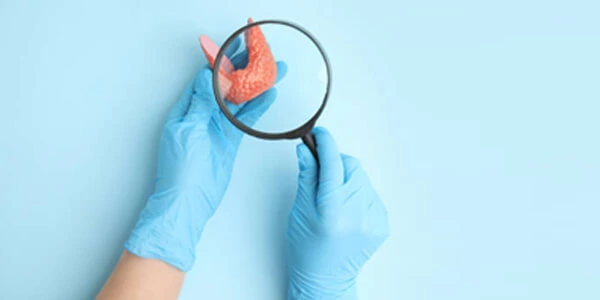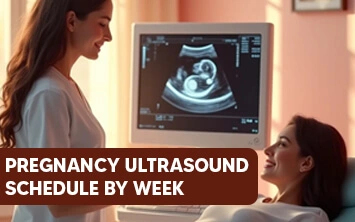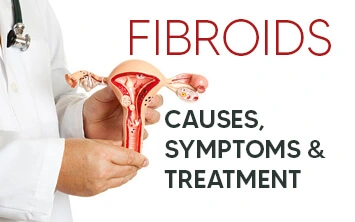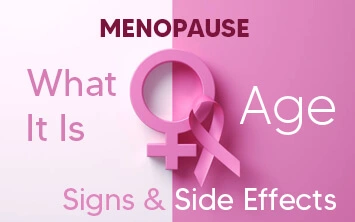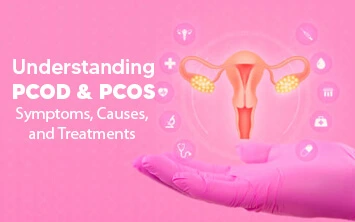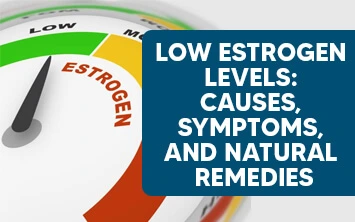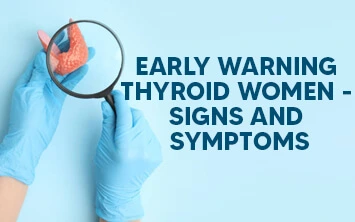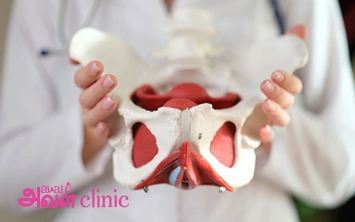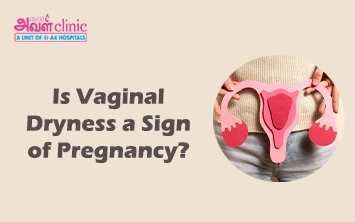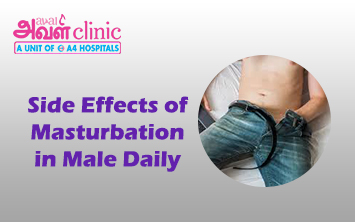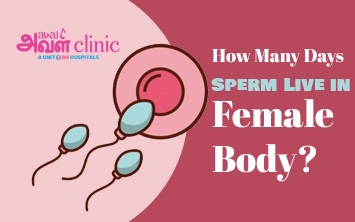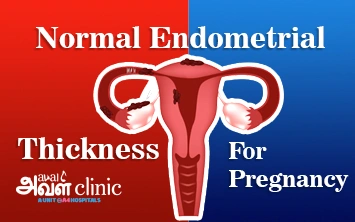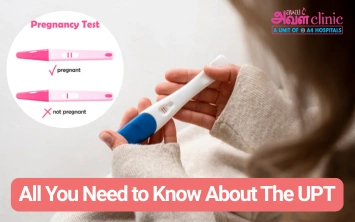Published on: February 18, 2024
Author: Admin
The thyroid is a gland present in the neck, which produces the thyroid hormone including thyroxine (T4) and triiodothyronine (T3). These hormones play a significant role in helping to regulate metabolism in the body. Depending upon how effectively your body produces the hormone thyroid, women tend to get affected by the condition and have symptoms for it.
Women’s thyroid symptoms may include tiredness, restlessness, hair loss and lose or gain weight. Women are more prone to have the risk of having thyroidal issues than men. Particularly after menopause, pregnancy, or birth and delivery.
Impacts of Thyroid Condition
Studies have identified that one-eighth of women develop thyroidal issues in their lifetime. Some of the most common impacts related to the condition may include:
Infertility
When the thyroid doesn't produce the right amount of hormones, it contributes to potential problems in females causing irregular menstrual cycles. This typically affects the ovulation period in women, which eventually leads to difficulty in getting pregnant.
Irregular menstrual cycle
The thyroid hormones have a crucial impact on controlling your menstrual cycle. They can contribute to making your blood flow lighter, heavier or even irregular. Some women even experience not having the menstrual cycle for several months. The condition is known as amenorrhea.
During pregnancy
In some women, thyroid medical conditions are developed during their pregnancy period. This causes issues for both the expectant mother and the baby.
Early menopause
When a woman has a thyroid condition, there are increased possibilities that other glands such as ovaries can also get affected. This can contribute to the risk of early menopause that is before the age of 40.
In some cases, a missed menstrual cycle for several months can be misinterpreted for menopause symptoms. Hence, it is always suggested to visit the doctor for a proper diagnosis.
Early Detection of Thyroid Condition
Early detection of thyroid medical conditions is significantly important because it allows for timely treatment, which can prevent potential complications. The complications may include untreated hypothyroidism.
Untreated hypothyroidism can lead to myxedema coma, which is a life-threatening condition. Whereas, untreated hyperthyroidism can lead to thyroid storm. The thyroid storm is a high-risk metabolic acceleration.
In general, if any of the thyroid conditions are untreated, they can cause potential health risks such as mental health disorders, cardiovascular problems, and severe metabolic imbalances.
Early detection through proper diagnosis can reduce the risk of severe health problems, enhancing the quality of life and ensuring better management of thyroid in females symptoms.
However, some women are at an increased risk of having a thyroid condition. They include:
- Women who have had thyroid issues in the past.
- Women who have undergone radiotherapy or surgery that affected the thyroid gland.
- Women who have medical conditions related to anemia, goiter, and type 1 diabetes.
Need expert advice? Consult our doctors now!
Call Now: 80047 80048Types of Thyroid Conditions
There are various types of thyroid conditions. They are:
Hypothyroidism
Hypothyroidism is a condition developed in the body when the thyroid doesn't produce enough thyroid hormones. It can contribute to slowing down the process of regulating metabolism in the body. The common hypothyroidism symptoms in women may include obesity, cold intolerance, fatigue, and depression.
Hyperthyroidism
Hyperthyroidism is a condition developed in the body when the thyroid produces more than enough thyroid hormones. It can contribute to accelerating the process of regulating metabolism in the body. The common symptoms of the condition may include nervousness, weight loss, heat intolerance, and increased heart rate.
Goiter
A goiter is a condition in which the thyroid gland is abnormally enlarged. The enlargement would be large enough that a person can touch and feel the lump in the neck. The condition is more common in women than men, particularly before menopause. The goiter can happen due to various reasons such as hyperthyroidism, hypothyroidism, or iodine deficiency. The thyroid symptoms in women may include swelling in the neck.
Thyroid Nodules
Thyroid nodules are lumps filled with either blood or fluid. In some women, these lumps can grow as solids. They generally develop on one side of the thyroid gland. These lumps are benign, meaning they are non-cancerous tumors.
Thyroid Cancer
Thyroid cancer develops when cancer cells form in the thyroid gland. The symptoms of the condition may include a lump, as in the cases of thyroid nodules, difficulty in swallowing, and a hoarse voice.
To differentiate between thyroid nodules and thyroid cancer, it is always suggested to seek medical advice from a reputed physician. The physician will be able to diagnose appropriately through certain tests and treat the condition.
Hashimoto’s Thyroiditis
Hashimoto’s thyroiditis is an autoimmune medical condition that causes the thyroid gland to gradually weaken. In other words, an autoimmune disease affects the functionality of the body’s immune system by attacking the thyroid gland. This contributes to the potential risk of developing hypothyroidism.
Graves’ Disease
Graves' disease is also an autoimmune medical condition that causes the thyroid gland to produce more than enough hormones. This contributes to the potential risk of developing hyperthyroidism.
Signs and Symptoms of Thyroid Issues in Women
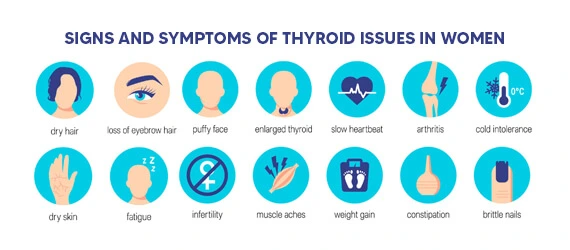
What Are Early Warning Signs of Thyroid Problems?
The medical conditions associated with the thyroid can be hard to diagnose on your own. This is because the symptoms often mimic other medical conditions or cognitive problems. However, there are some early warning signs of thyroid issues that a woman should be aware of. They include:
- Fatigue
- Constipation
- Muscle weakness
- Joint or muscle pain
- Weight loss
- Weight gain
- Pale, dry skin
- Increased heart rate
- Dry, thinning hair
- Slow heart rate
- Sensitivity to cold
- Sensitivity to heat
- A puffy face
- A hoarse voice
- Heavy bleeding during the menstrual cycle
Diagnosis of Thyroid Condition
When it comes to diagnosing thyroid medical conditions, your healthcare provider may suggest certain thyroid tests, conduct physical examinations, and review your medical history. In some cases, a biopsy may also be required for further analysis of the condition.
The diagnosis and treatment options may vary depending on the severity of the condition and symptoms. The diagnostic options include:
Thyroid-Stimulating Hormone (TSH) Test
The TSH test measures the level of thyroid-stimulating hormone in the body. A high level of TSH in the blood indicates hypothyroidism, while a low level indicates hyperthyroidism.
Thyroxine (T4) Test
The T4 test measures the level of thyroxine (T4) hormone in the blood. A high level of T4 suggests hyperthyroidism, whereas a low level indicates hypothyroidism.
Triiodothyronine (T3) Test
The T3 test measures the level of triiodothyronine (T3) hormone in the blood and is primarily used to determine the presence of hyperthyroidism.
Thyroid Antibody Tests
These tests help measure the presence of antibodies produced by the immune system that attack the thyroid gland.
Thyroid Ultrasound
A thyroid ultrasound is performed to analyze the type of nodule present in the thyroid. It helps physicians determine its size and exact location. Additional ultrasounds may be recommended to monitor the nodule’s growth while the patient is on medication.
Thyroid Biopsy
A thyroid biopsy is conducted to determine the presence of cancer cells in the thyroid. A small sample of tissue and fluids is collected for examination. If abnormal cells are detected, it could indicate thyroid cancer.
Treatment of Thyroid Conditions
The treatment for thyroid medical conditions depends on the symptoms of thyroid problems in females and their severity. The primary goal is to enhance the quality of life and ensure better management of symptoms. The treatment options include:
Hormone Replacement Therapy
Thyroid hormone replacement therapy (HRT) is performed under two circumstances:
- To replace the underactive thyroid function in hypothyroidism (replacement therapy).
- To prevent the growth of thyroid tissues (suppression therapy), commonly used in thyroid cancer patients to reduce recurrence or progression.
Radioactive Iodine Therapy
Radioactive iodine uptake (RAIU) therapy is used to treat hyperthyroidism and certain types of thyroid cancer. It works by destroying thyroid tissue to minimize excessive thyroid hormone production.
Thyroid Surgery
Thyroid gland removal, also known as thyroidectomy, is a surgical procedure to remove part or all of the thyroid gland. This surgery is commonly performed on patients with thyroid nodules or thyroid cancer.
Beta-Blockers
Beta-blockers are prescribed to patients with hyperthyroidism to manage symptoms such as tremors, rapid heartbeat, and anxiety.
Antithyroid Drugs
Antithyroid medications help reduce thyroid hormone production in hyperthyroidism patients, aiding in symptom control and disease management.
Summary
Diagnosing the thyroid reasons in female can be hard since the symptoms can most of the time mimic other medical conditions or cognitive problems. An underactive or overactive thyroid exhibits different symptoms. Understanding the type of thyroid condition only based on its symptoms is a difficult thing.
If you suspect a thyroid condition, it is highly recommended to monitor the signs and changes in your body closely. Seeking medical advice from a reputed physician promptly with the early warning signs of thyroid can contribute to enhancing the quality of life and optimal management of the condition.

